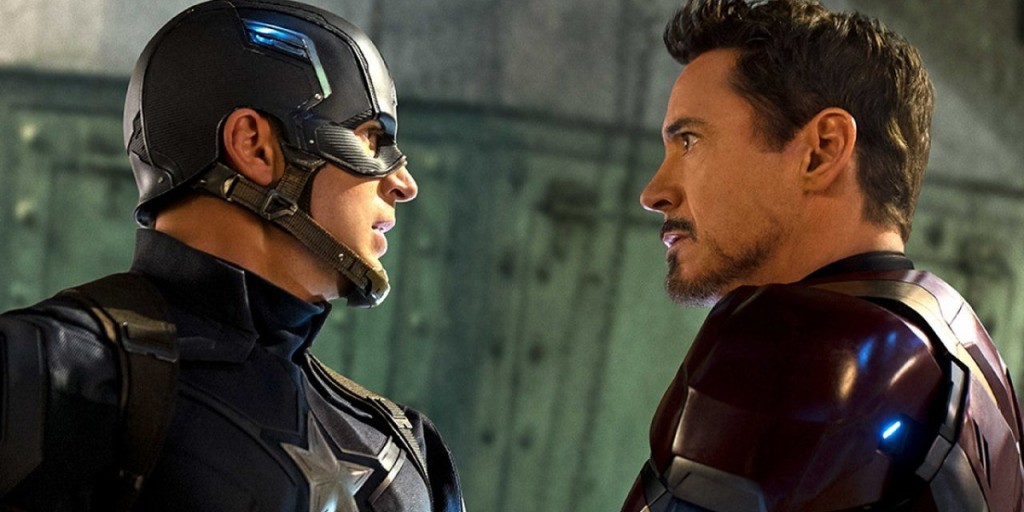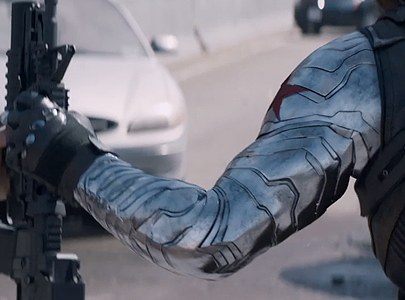Genre: Superhero
Premise: When the government attempts to gain control over the Avengers, it fractures the team, leading to an inevitable battle between those who believe they should be contained, and those who want freedom.
About: People in the industry have been calling this Avengers 2.5 for awhile now, not just in scope, but in budget. Apparently this was one of Marvel’s toughest productions, with the top brass complaining that way too much money was being spent on something that wasn’t an official Avengers film. Maybe the 180 million dollar opening (just 11 million less than the more heavily hyped Avengers 2) has alleviated some of those fears. The script was written by the top writing duo at Marvel, Christopher Markus and Stephen McFeely. The two also wrote the upcoming Avengers 3 & 4, which will be filming back to back.
Writers: Christopher Markus & Stephen McFeely (comic by Mark Millar) (characters by Joe Simon and Jack Kirby)
Details: 147 minutes long!
Whenever I write about these superhero movies, people say, “These movies have nothing to do with screenwriting.” And while I can understand where they’re coming from, they’re wrong. In fact, scripting a superhero film, especially one like Captain America: Civil War, is one of the hardest things a screenwriter will ever have to do.
Because you’re not just trying to please 20 different people who all have their own ideas of how the script should go. You’re balancing a ton of characters. And that’s probably the hardest thing to do in screenwriting, is balance a huge cast of characters.
I’m still of the old-school belief that movies are best served with a single dominant hero. It’s the formula that works best for the feature film format. Indiana Jones, John McClane, shit, even the recent Deadpool.
Every scene where you focus on a character who isn’t your hero, you are taking time away from your hero. And when you do that, it becomes difficult to develop the hero, to arc the hero, to give them any sort of meaningful journey. And with a movie like this, you’re jumping around to so many damn people, all Captain America has time to do is say, “I don’t like what’s going on.” And how fucking interesting is that?
But franchises like Harry Potter and Marvel and Fast and Furious have made this the new norm for summer films. It’s not about character development anymore. It’s about character variety. And I’ve come to realize how they’ve handled this change.
Fast and Furious and Avengers films have become giant TV shows. What do TV shows do? They stuff their shows with lots of characters and each scene moves along a couple of those characters at a time. That’s what Civil War was. We’d jump to Cap and Buckey, then Scarlet Witch and Vision, then Iron Man and Spider-Man.
The difference is, movies weren’t built for that. With TV shows, you always have a new episode next week. So you can afford to go 15 minutes without mentioning a key storyline between characters because we know we’re going to see those guys next week. With movies, everything has to be figured out by the end of the film.
So we get this weird hybrid movie-TV structure that never feels comfortable with itself, like a dress that doesn’t fit right. And that was my beef with Civil War. We’re jumping around so damn much that I’d forget what the fucking movie was about.
Honestly, I think that’s why they called it Civil War. So that anytime you forgot, you’d go, “Oh yeah, this is called Civil War. So the superheroes are going to fight each other. That’s what this is about.”
But is it what it was about? Not really. Captain America: Civil War is about the latest trend in superhero films – PUBLIC DESTRUCTION. It’s as if everyone’s just figuring out now that when Iron Man knocks over a skyscraper, there may be a few hundred people inside that just died. Which is kind of cheap when you think about it. Because the whole reason you placed your characters in a city in the first place was because it looks cool. Superheroes fighting in the Sahara is never going to be able to convey as much visual awesomeness as an 80-ton metal slab colliding with the Hulk.
So for them to conveniently just be figuring this out now? Come on.
Anyway, Tony Stark (Iron Man) gets all emotional about these real-world people dying and wants to sign a treaty with the United Nations where they would hand over control of the Avengers. Strangely, this takes everything about Stark that’s cool and fun and emasculates it, turning Tony into a depressing little whiner. Captain America, for no other reason than the plot requires it, steadfastly disagrees, and the rest of the Avengers are forced to take sides.
This leads to what is probably the best action scene in superhero history, the showdown at the airport. These Russo Brothers guys are incredible directors and, in many ways, saved a script that was burdened with trying to do too much for too many.
My favorite moment was when the tiniest superhero (figuratively and literally), Ant-Man, became the most influential in the whole battle. And it reminded me that right now, Ant-Man is probably the most interesting thing Marvel has going for it. He’s the only character that allows you to do things that you haven’t previously done in these movies.
The problem was, once that scene was over, you wanted to go home. I mean, isn’t that why we came? It’s not like we were on the edge of our seat, desperately wondering where the story was going to go next. Especially because you needed a spreadsheet to keep track of all the storylines.
With that said, the writers tried. There was this Buckey storyline – a superhero from Captain America’s past who was either good or bad, we couldn’t tell – that Civil War kept coming back to. But a) how are we supposed to care about little old Buckey in a movie where there’s going to be a full on war between the Avengers, and b) Buckey as a superhero is fucking lame.
The dude has a MECHANICAL ARM. That’s your superhero? A strong arm? Ooooh, what’s next? A superhero with a disease-free toe? One with a leg that has 70% more endurance than the other leg?
And why don’t we make this a call out to Marvel. Marvel: GET RID OF ALL YOUR LAME SUPERHEROES. Guy with mechanical wings? Not a superhero. Guy who shoots arrows? Not a superhero. Girl who jumps on people with her legs and twists them onto the ground really hard? Not a superhero. The only people who should be onscreen in these movies are real superheroes. Seriously now.
Captain America: Civil War has confirmed a truth I’ve found to be correct 90% of the time. The bigger a script gets, the more it suffers. That’s why the previous Captain America was better than this iteration. Simpler story. And it’s why Deadpool, a super-simple story about revenge beat out Batman vs. Superman, which got lost in its dense and unfocused storyline.
I understand that going lower-budget scares the hell out of executives. There’s pressure to give the audience a visual experience that they’ve never had before. And you can’t do that without lots of money. But they need to keep the simple storytelling spirit. They need to ask what makes a good movie. Because, believe it or not, it is possible to have a big movie also be a great story.
I thought this movie was okay. But superhero fatigue, a forced superhero war, and a lame b-story with Buckey the one-armed bandit, kept this out of recommend-territory.
[ ] What the hell did I just watch?
[x] wasn’t for me (except for the airport fight)
[ ] worth the read
[ ] impressive
[ ] genius
What I learned: For those of you resisting those character bios I’m making you write, every superhero in this movie has at least 30 years of backstory/biography to draw from. In essence, these characters have lived entire lives already. This is what you’re competing against so figure out as much about your characters’ pasts as you can.



